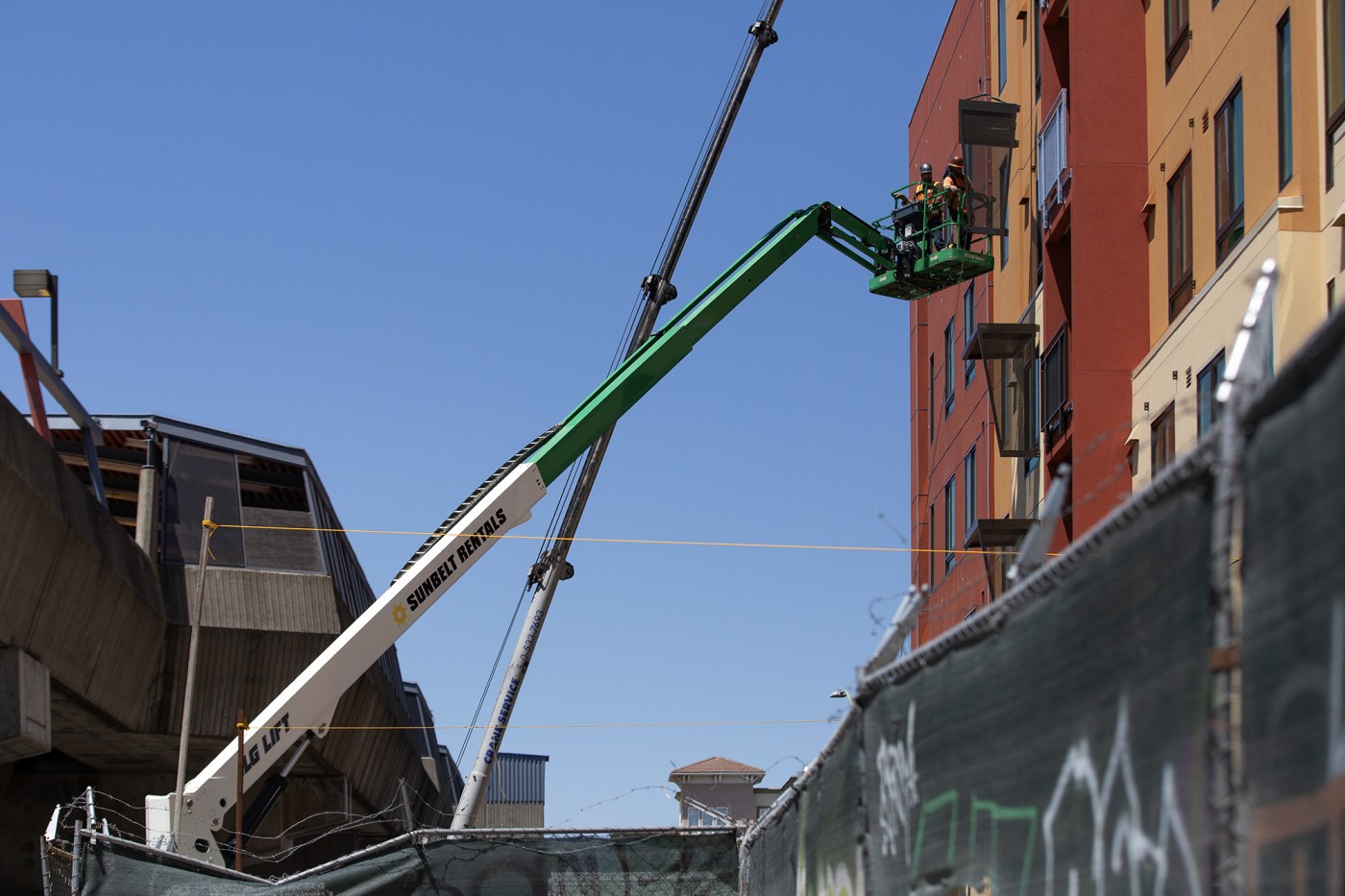
The effort by two California lawmakers to exempt most urban housing developments from the state’s premier environmental regulation — an idea that has drawn some of the state’s most powerful interest groups into a fierce legislative debate — received a prized endorsement from Gov. Gavin Newsom.
Related Articles
Is secret to California’s housing affordability buried in its building code?
101 townhome units planned for Sunnyvale shopping center irks some residents
San Jose deal could change fortunes of West St. James housing towers
San Jose incentive program spurs multifamily development despite the economic challenges
Luxury apartment complex at Santana Row bought for more than $70 million
While announcing his updated budget proposal for the coming fiscal year, the governor on Thursday urged the Legislature to pass two housing bills and thanked their Democratic authors, Oakland Assemblymember Buffy Wicks and San Francisco Sen. Scott Wiener.
“It’s time to get serious about this issue, period, full stop,” Newsom said this morning. “If you care about your kids you care about getting this done. This is the biggest opportunity to do something big and bold and the only impediment is us.”
Wicks’ Assembly Bill 609 would exempt most “infill” housing developments, projects built in or next to existing developments, from review under the California Environmental Quality Act. That 55-year-old statute requires governments to study the environmental impact of any decisions they make, including the approval of new housing. Any person or organization — construction worker unions, environmental advocates or neighborhood groups, to name a few —can challenge the validity of those studies, delaying approval.
Critics of the law argue that it is regularly abused for non-environmental reasons to delay urban housing projects which are inherently better for the environment than sprawl development. Defenders of the law say such lawsuits are relatively rare.
Wiener’s Senate Bill 607 is a highly technical grab bag. Among other things it would make it easier for state and local governments to approve projects — housing and otherwise — without conducting a full, lengthy review and exempt certain zoning changes for infill projects from CEQA entirely.
Newsom said that he would include language that mirrors those policy goals in upcoming budget bills.
“These bills are critical permitting reform proposals, and I applaud Gov. Newsom for including them in his proposed budget,” Wiener said in a statement. “By clearing away outdated procedural hurdles, we can address California’s outrageous cost of living, grow California’s economy, and help the government solve the most pressing problems facing our state.”
The governor also published proposed legislative language that would channel certain environmental impact fees collected from development projects toward the construction of new affordable housing located near public transit stops. That mirrors another bill authored by Wicks.
That proposed legislation would also give the California Coastal Commission, a frequent target of pro-development legislation, a deadline for responding to project proposals.
Asha Sharma with the nonprofit Leadership Counsel for Justice and Accountability said it was “definitely concerning” that the governor has vowed to push such significant policy changes through the budget process, shielding it from the legislative and public scrutiny paid to most legislation.
The group, which organizes residents of the San Joaquin and Coachella Valleys, opposes both of the bills Newsom endorsed. Sharma argued that certain portions of the Wiener bill would allow major infrastructure and industrial projects, not just new apartment buildings, to escape rigorous environmental review, a point Wiener has disputed. Its opposition to Wicks’ bill is largely based on the fact that it would provide a CEQA exemption to all infill projects, not just those with units set aside for lower-income residents.
“There needs to be some type of affordability protections in this bill,” she said.
This isn’t the first time the governor has weighed in on the landmark environmental law. Two times in as many years, the administration has urged the Legislature to tinker with the law to make it easier to build infrastructure projects and to expand the state’s renewable energy capacity.
The Legislature hasn’t always listened and the prospect of comprehensive “CEQA reform,” a goal regularly touted by California governors and resisted by environmental groups and many unions, remains elusive.
Those earlier legislative efforts were “weak sauce” and “piddlywinks,” these bills represent much more substantive change to housing and environmental policy, said Chris Elmendorf, a UC Davis Law professor and frequent public critic of CEQA.
“The fact that the governor is willing not just speak in generalities, not just have Ezra Klein on his podcast, but to endorse specific bills and even go beyond endorsing them by tying them to his budget and putting pressure on the Legislature, that, I think is a very big development that we haven’t seen previously from this governor,” he said.
His nod to these two bills comes at a politically important time. Wicks’ bill has sailed through the Assembly so far with the explicit backing of Speaker Robert Rivas. Wiener’s bill has made its way through two committee, but only barely escaped one over the objections its chair.
Both Legislative leaders have vowed to prioritize legislation that promotes “affordability.” Rivas, closely allied with the “yes in my backyard” movement, has publicly endorsed a suite of bills aimed at reducing regulations and speeding up approvals for new housing. McGuire, tasked with wrangling a Senate Democratic caucus with public fractures over housing policy, has been more reluctant to articulate the specifics of his housing agenda.
Related Articles
Is secret to California’s housing affordability buried in its building code?
101 townhome units planned for Sunnyvale shopping center irks some residents
San Jose deal could change fortunes of West St. James housing towers
San Jose incentive program spurs multifamily development despite the economic challenges
Luxury apartment complex at Santana Row bought for more than $70 million